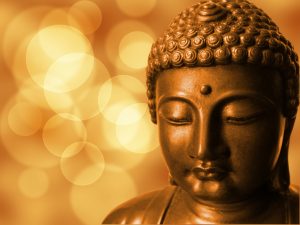Inamori,in Kyocera philosophy, encourages their staff to follow this motto.
However, some say that not only work but also hobbies and entertainment are necessary to fulfill our lives. This time, I would like to spend some time analyzing how those two items, (work and hobby or entertainment) are associated with each other.

Inamori explained as follows:
Loving your work and striving to work harder mean being diligent and always having a sincere attitude towards work. I believe our true fulfillment must be found in our works. If you neglect your work and try to entertain yourself in other activities or hobbies, you would be able to enjoy yourself for a while, but you never feel fulfilled in your soul. Unless you can get a sense of fulfillment in the work that occupies the greatest weight in a person’s life, you would end up feeling emptiness. Only when you work hard and devote yourself for others, will you have irreplaceable joy.
Also, I reiterate that “We should strive to work harder than anyone else.” In order to work harder , it is very important to love our work and commit ourselves to those assignments seriously and diligently.

In Zen Buddhism, monks in a temple do everything from preparing meals to cleaning the garden as well as the temple. Zen Buddhism emphasizes each of these tasks as a practice and an important process of self-discipline.
It is based on the idea that working hard and earnestly devoting yourself to work is the same as meditation to develop and mature your spirit and unite it with the universe. Seriousness and hard-working means to devote yourself to something and make a tremendous effort, since such effort ultimately makes humanitarian values of each of us. Thus, Buddha encourages us to conduct a sort of “dedication”.
Inamori also mentioned how the masters and master-works(pieces) should be created.
In other words, masters and ultimate professionals are those who are not only outstanding in their works, but have already achieved to the exceptional level of their mentality, as though they are well-trained and enlightened Buddhism monks. Even if you can say that you have high skills in creating your works, unless your mental status is mature, you would never get recognized as a master. Of course, those masters’ skills are excellent, but the mental maturity and deep understanding should come from their mental development. How mature they are in their mental status should be reflected in their works. The more mature the master is in his mentality, the more wonderful and impressive works they can deliver. That’s why we call them masters /professionals. That’s exactly what you can’t make unless you devote yourself to your work seriously.
“We need not only our work but also hobbies and entertainment.” Some people say that. But, to me, it just looks like people who can’t devote themselves to their core job are just trying to escape from their vocational work, and seeking a sort of illusion in their hobbies and entertainment.

Inamori also shared his views on how we can select our leaders in light of his humanitarian values.
He said, “How do we choose a leader? First of all, it is necessary to think about how personality (or humanitarian values) is formed and how it can be improved. I believe that personality can be improved through day-to-day work, not by accumulating a lot of knowledge. In other words, we believe that only by working hard, we can improve our personality towards enlightenment.”
Based on Inamori’s insights, I would like to analyze the difference between vocational works and hobbies, and how those two can be associated with each other. The key findings are as follows.
1 Each person has his own vocation
2 The vocation is to satisfy your soul and may somehow overlap with your hobbies.
3 Conducting daily works with sincerity would lead to our vocations.
Let me elaborate more on each of the above items.
1 Each person has his own vocation
If you look up the vocation in a dictionary, it says “a profession suitable for the person’s nature and ability.”
Anyone can find a job.
What can I do for others?
What are people having trouble with?
I think you can find a job just by thinking about these two things.
There is a person who is famous on Twitter and is called “a rental person who does nothing”.
“I want you to go to a sweets buffet with me as I am a guy.”
“I want you to go to the scene where I attempted suicide.”
“Do nothing guy “has satisfied those requests.
I can’t do it by myself, but I want someone to be there, that guy has fulfilled such desires.
He has got money by staying with his client on such extraordinary occasions.
On the other hand, there are many youths who have easily changed their jobs to seek their “vocational works”, simply because they just feel uncomfortable working in an environment.
Unfortunately, there are many people who repeatedly change jobs due to such reasons.
For such people, I think they should consider once again the meaning of the vocation.
Helping others is the starting point to look for a vocation.
I would like all those young workers to think about this.

2 The vocation is to satisfy your soul and may somehow overlap with your hobbies.
“When I’m working on that job, I just get absorbed in it.”
“I know I’m enjoying myself from the bottom of my heart when working on it”
A sense of fulfillment, a sense of accomplishment, the gratitude to live in this world, if you can find those feelings in working, I am sure that you ‘ve got your vocation.
So, think about how you have been feeling when you deal with your hobbies and entertainment. If you can find yourself with those feelings, I feel that your hobby can be your vocation. Even though that hobby doesn’t bring you income or rewards, that could be.
You just simply put some restrictions on yourself not to develop your hobby to your vocation.
Depending on how you change your attitude toward your hobby, it’s not that difficult to make your hobby your job to fulfill your soul.

3 Conducting daily works with sincerity would lead to our vocations.
“I have never felt a sense of fulfillment in work.”
“Nothing has ever brought me such fulfillment.”
Maybe some people feel like that.
Perhaps for many, the vocation may not be easy to find.
I have been working in real estate for the past 33 years.
However, this work has never hit me as “my vocation.”
There are many people who love real estate and work in real estate.
Many of these people feel uplifted and pleasant about moving big money.
I have never had such enthusiasm towards the properties that I should deal with.
That’s why I think I CAN do real estate work.
I have spent almost the same energy into both 100 billion yen properties and 300,000 yen rental properties. I can calmly and objectively deal with those projects in the same professional manner. That is why I think I have been able to continue my work as an independent, professional in real estate.
I think Mr. Inamori gave us hints to find our vocations.
Work carefully and hard on every single and tiny job in front of you, assume that it is your vocation, work with all your souls and spirits, and devote yourself to complete it. In that you may, you would be able to understand your vocation. I think Inamori’s advice is appropriate and points out the nature of vocation.
Before looking for your vocation, you should take the work in front of you seriously. Think that you can help others by immersing yourself in what you can do. This would lead to creating your own vocation. I believe this is what Inamori wanted to share with us.

Further queries or doubts, please email to ytomizuka@abrilsjp.com
News Letter subscription is here











